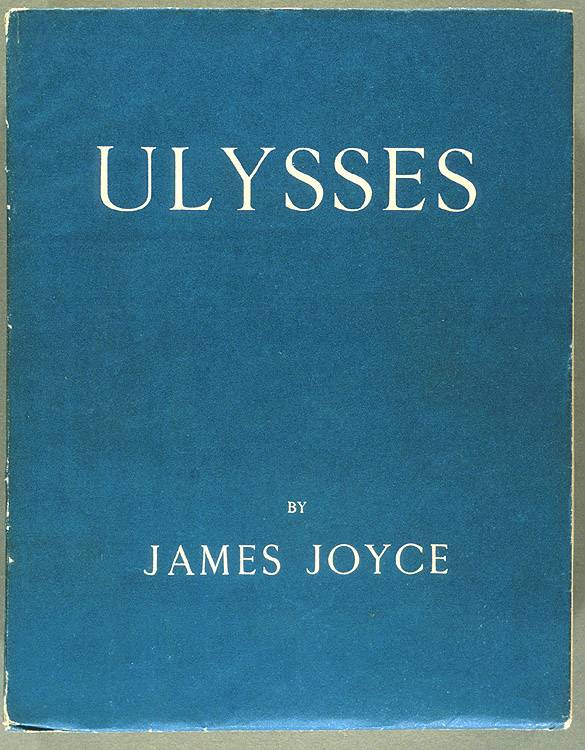The Warble
The Official Blog of Karen Ullo
I Will Keep Singing
July 18, 2016
The first indication I had yesterday that all was not well here in Baton Rouge came from my pianist at church. She walked in for our usual pre-Mass warm up and reported that she had seen at least a dozen police cars responding to something on Airline Highway. In hindsight, she might have driven past while the shooting was happening. She could not have missed it by more than a minute or two.
Three police officers are dead, two from Baton Rouge City Police and one from East Baton Rouge Parish Sheriff’s Office. The sheriff’s deputy was the son of parishioners at my church.
I have bought gas at the service station where the shootings happened. It’s only five miles from my house.
The violence that engulfs our world is always far away… until it isn’t.
In Louisiana – Albert Bigelow Paine
The long, gray moss that softly swings
In solemn grandeur from the trees,
Like mournful funeral draperies,—
A brown-winged bird that never sings.A shallow, stagnant, inland sea,
Where rank swamp grasses wave, and where
A deadliness lurks in the air,—
A sere leaf falling silently.The death-like calm on every hand,
That one might deem it sin to break,
So pure, so perfect, —these things make
The mournful beauty of this land.
But we can give voice to the brown-winged bird. We can break the death-like calm. On a Sunday morning while our city erupted in gunfire and grief, my friends and I – we sang. We sang with and for our people. We sang with and for our God. We sang because as long as we keep singing, the darkness has not won.
In moments like these, we all ask ourselves, What can we do? I do not know how to stop the violence. A deadliness lurks in the air,— A sere leaf falling silently. I cannot stop the leaf from falling. But, for as long as God grants me breath, I can make the air around it vibrate with beauty, hope, and praise.
Will you sing, too?
When Great… Just Ain’t

I’ve never been the kind of person who feels obligated to respect a book (or other work of literature) I don’t like, no matter how vaunted its reputation. I have more than a few quarrels with Shakespeare, starting with the fact that Romeo and Juliet are both complete imbeciles whose suicides inspire me with contempt rather than sympathy. Lord of the Flies is my husband’s favorite book, but back in middle school, I threw it across the room more than once. I don’t find A Confederacy of Dunces even slightly funny – just pathetic. I could go on.
However, I can usually figure out why other people think a certain book is great, even when I disagree. Romeo and Juliet is filled with gloriously memorable speeches. Lord of the Flies does, in fact, make me want to kill someone (namely William Golding), so I guess I can sympathize, at least a little, with the characters. I understand how Ignatius J. Reilly could make certain people laugh, even if I’m not one of them.
But I have met my match in Ulysses.
It’s been called the greatest novel ever written in the English language. But…
How much would that tot to off the porter in the month? Say ten barrels of stuff. Say he got ten percent off. O more. Ten. Fifteen. He passed St. Joseph’s National school. Brats’ clamour. Windows open. Fresh air helps memory. Or a lilt. Ahbeesee defeegee kelomen opeecue rustyouvee double you. Boys are they? Yes. Inishturk. Inishark. Inishboffin. At their joggerfry. Mine. Slieve. Bloom.
I figured out that the bit that looks like gobbledygook is a phonetic recitation of the alphabet. But can someone please explain to me how this qualifies as English – much less “the greatest English ever written”? I haven’t even gotten to the supposedly scandalous parts, but I don’t imagine I’d be scandalized by strings of lascivious nonsense, anyway.
Check Ulysses off the list. Life is too short for this. I’m done.
Karen Ullo is the author of Jennifer the Damned, now available from Wiseblood Books. To find out more, go to www.karenullo.com.
Reading Backwards
“Now ordinary people are born forwards in Time, if you understand what I mean, and nearly everything in the world goes forward too…. But I unfortunately was born at the wrong end of Time, and I have to live backwards from in front, while surrounded by a lot of people living forwards from behind.” – Merlyn in The Once and Future King
 When I was in grade school, I embarked on a quest to read every Great Book ever written. If the library housed it on the Classics shelf, or if I had heard someone call it “important,” that was enticement enough to read it – especially if a grown-up told me I was too young to understand. If it weighed more than the average lapdog, I considered that a bonus.
When I was in grade school, I embarked on a quest to read every Great Book ever written. If the library housed it on the Classics shelf, or if I had heard someone call it “important,” that was enticement enough to read it – especially if a grown-up told me I was too young to understand. If it weighed more than the average lapdog, I considered that a bonus.
A true story: one day, during the summer between eighth and ninth grades, I emerged from my bedroom to find out why my family had suddenly huddled around the TV. Breaking news! I watched for about three minutes as Al Cowlings drove OJ Simpson down the freeway in the world’s slowest high-speed chase… then I got bored and returned to reading Les Misérables. Unabridged.
However, somewhere in my zero-to-sixty race from Anne of Green Gables to Anna Karenina, I missed reading many of the “childhood classics.” I had never even heard of The Chronicles of Narnia until I was in college. I think I was thirty when I first read Peter Pan. I can be excused for not reading Harry Potter until I was twenty-one because the first book wasn’t published until I was eighteen. But I am glad I found these books so late because discovering gems like The Little Prince and A Wrinkle in Time (both of which I read for the first time within the last year) has been one of the great joys of my adulthood. They’re better now than they would have been when I was young. I would have enjoyed them then, but I would not have found them challenging. Now, however… what could be more challenging to a frenetic adult than simplicity? What could be harder to grasp in this relativistic world than the clear, pure morality of childhood?
It’s been said that the Good Books – the ones that are meant to shape our imaginations in childhood – prepare us to encounter the Great Books, and that is true enough. Children need the children’s classics, and I was no exception. But I’m finding that the process works equally well in reverse: having read the Great Books makes me appreciate the Good Books even more. Having fought my way through the contrapassos of the Inferno gives me the foundation from which to appreciate how Charles Wallace Murry’s heightened senses of perception can blind him to the reality of the dangers he encounters in A Wrinkle in Time. That’s because great children’s literature and great grown-up literature are great for the same reason: both wrestle with the deepest quandaries and questions of our human lives, especially our moral lives, and they’re “great” because they do so in a way that resonates with Truth. But, at the risk of sounding like a simpleton, I admit that I often find the children’s books more relevant to my current state of life.
Fiction exists to nourish the mind, but more importantly, to nourish the soul. When I was young, both my mind and my soul needed challenge. I needed depth and complexity to help me expand, grow, develop. Life itself was simple: go to school, do homework, play – read. Reading was the doorway into broader, more convoluted worlds. I needed thousand-page tomes penned by great thinkers to serve as guides, signposts, and warnings on the road of life. Now, however, both my mind and soul are daily drowning in complexity. Husband, children, job, other job, mortgage, politics, doctors… Reading has become a doorway into worlds that help to filter out the noise, worlds that clarify and simplify and bring life back into focus. I need books that kindle the sparks of simple joys and give me courage to face life’s monsters. When I was a child, I read to become a grown-up; now that I am a grown-up, I read to become a child.
Just call me Merlyn.
Karen Ullo is the author of Jennifer the Damned, now available from Wiseblood Books. To find out more, go to www.karenullo.com.
Just the Right Amount of Sick

One of the most frustrating parts about being a singer is that minor illnesses take such a major toll on the voice. I will never forget that morning during my first semester in grad school when I woke up with a sore throat. After four years spent earning my Bachelor of Music in vocal performance, I had finally moved on to a master’s in screenwriting. I woke up that morning, and my first thought was, “Ugh. My throat hurts.” My second thought was, “Hooray! I don’t have to sing!” I went to school that day, dragged my feet a bit, and otherwise accomplished everything I would ordinarily accomplish without any real interference from the germs. Liberation!
As luck (or God) would have it, I’ve ended up earning an awful lot more of my living with my voice than with my pen, despite the fact that I’ve never really been healthy. Allergies, asthma, acid reflux – all conditions that are deadly to a singer’s voice – are a regular part of my daily life. I put up with chronic tonsillitis for years before I finally got the damned things removed, after which my body switched to chronic sinus infections instead. Through it all, I’ve had no choice but to sing because that is my job. Yes, I should have gotten a new one, but somehow, the idea of singing though horrific pain is more appealing to me than sitting behind a desk forty hours a week. That’s called dedication… or maybe psychosis.
One thing I’ve learned through all these years of “playing hurt,” besides a million and one ways to manipulate my throat muscles to work around the inflammation, is that there is a very specific kind of sick that actually makes me sound better. It’s a very small window in the progression of an ordinary illness. Sometimes it lasts a day, sometimes only a few hours, and when the window closes, I will probably have to spend several days with no voice at all. It comes right at the point when I’m sick enough that I definitely want to be in bed, but not quite sick enough to insist that I cannot get out. It doesn’t happen every time, but every once in a while, I am just the right amount of sick to let my throat relax completely, and the tiny bit of sound I’m able to produce just soars away, unaided. You’ve never heard such delicate soprano notes as I can float on such a day. Once, I placed first in a competition singing Mozart that way. Just recently, I brought someone in my congregation to tears. Every single note of it is agony, not to mention the effort it takes just to stand. But it is worth every ounce of the pain because it’s glorious: a moment of near-perfection, a participation in the divine.
It’s the same with souls, I think. Sometimes, it’s only because we’re sick with sin that God is able to use us – maybe because our own failings grant us understanding of someone else’s suffering, or maybe because we’re better able to see light when it’s contrasted against our own darkness. Sometimes, we’re just the right amount of sick to finally relax and get out of our own way. Those are the moments when God perfects us.
Karen Ullo is the author of the novel Jennifer the Damned. To find out more, go to www.karenullo.com.

Recent Comments